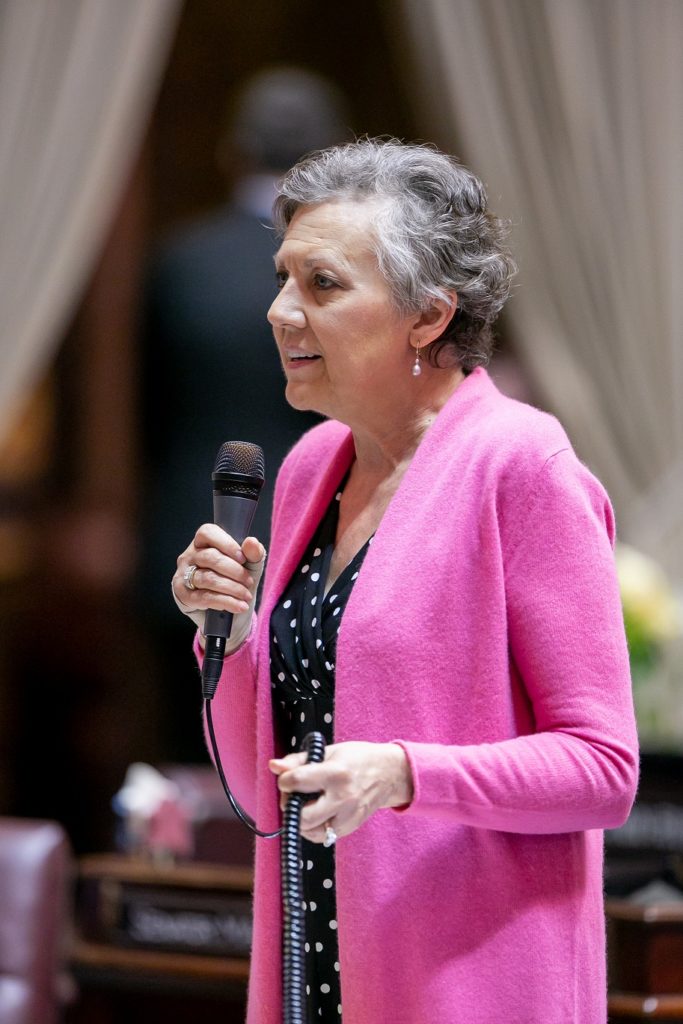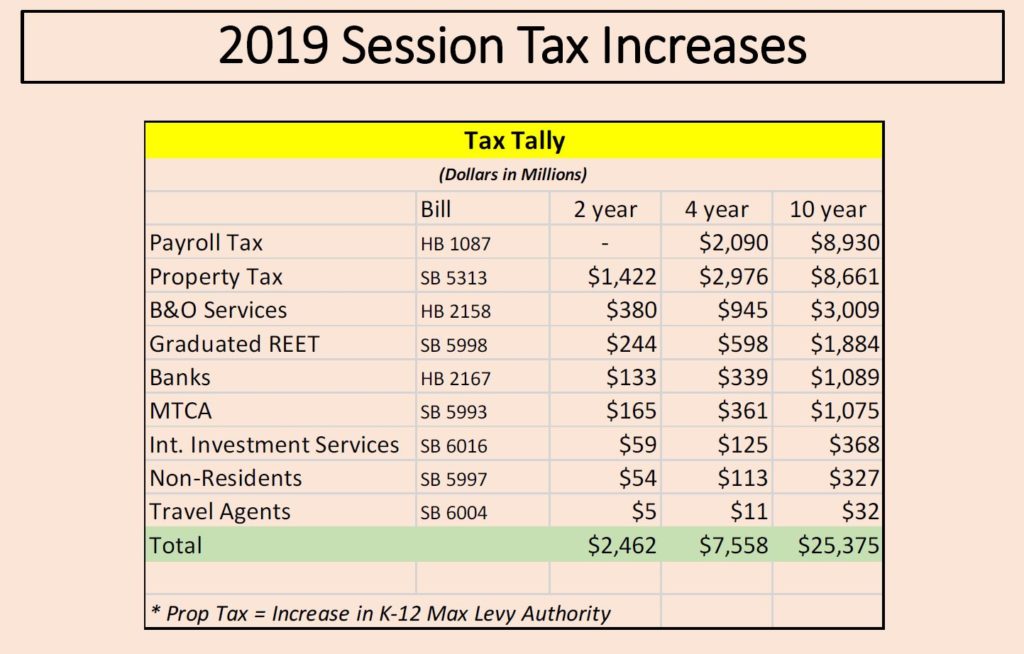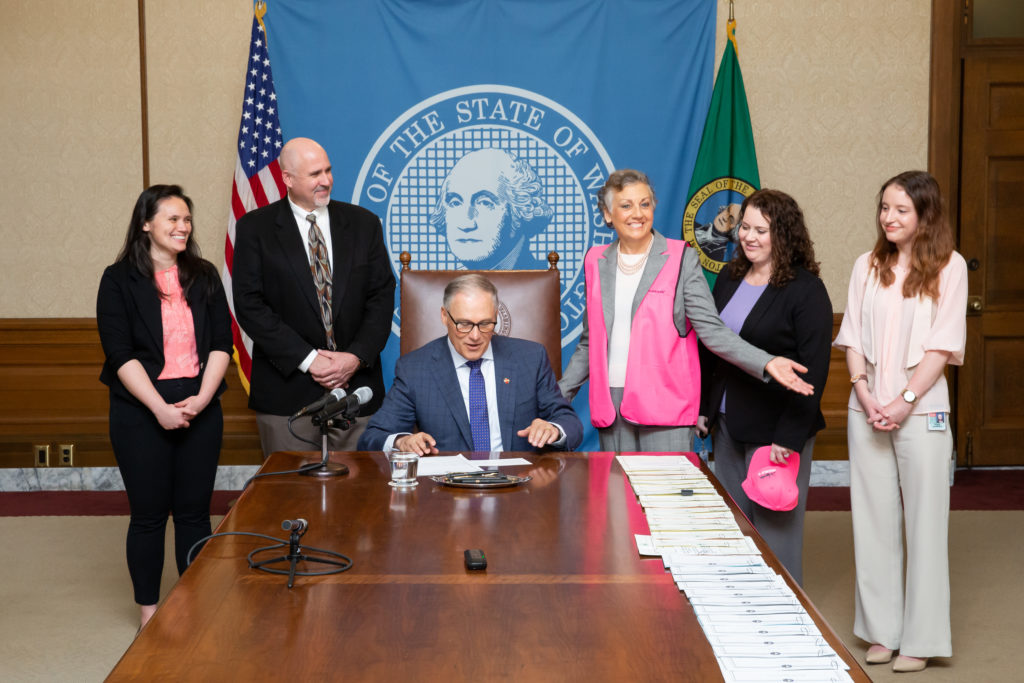Hello, Friends and Neighbors!

This year’s legislative session ended late Sunday night, literally a few minutes before it would have gone into overtime. It’s great to be back home but disappointing to look at what happened in the final week of the session. While it had become apparent that tax increases would be coming, it was still frustrating to see how things unfolded, with most of the tax votes happening late at night and in the early hours of the morning while the taxpayers were asleep.
My colleagues across the political aisle may try to point out that the tax legislation they ended up adopting is focused on employers and didn’t include imposing a new state income tax directly on the people. I’d respond by pointing out that there was no need to raise any taxes this year – not when state government was already expecting to have $50.5 billion to spend in the new budget, which is far more than the current budget of $44.4 billion. And what sense does it make to hit the private sector with unnecessary new taxes when no one knows how much longer our state economy will continue to be on a roll?
On top of all the state-level tax increases, I’m also concerned about the decision made in the final days of the session to enable property-tax increases at the local level.
Budget rundown
The 2017-19 budget cycle runs through June 30. The three new state budgets will take effect July 1 and run until the end of June in 2021.
Operating budget: This is usually referred to simply as “the budget” and covers most of the day-to-day operating costs of most state agencies, as well as public schools.
The Legislature could have kept all existing services and programs going and made new investments in special education and mental-health treatment while living within the means provided by taxpayers. Instead, the majorities in the Senate and House agreed on Sunday to spend $52 billion, which is more than 17% above the current budget – and the largest jump in 30 years.

Look at the box of taxes that were adopted, and again, realize that none of these tax increases was necessary. I was particularly disappointed by the elimination of the sales-tax exemption for non-residents because of what it will mean to Clark County retailers. (The “payroll tax” listed is basically independent of the budget, and I’ll explain it another time; the “property tax” refers to allowing school districts to pursue higher local tax levies.)
Capital budget: This also could be called the construction budget, because many of the projects it supports in our local communities involve some kind of building or remodeling. Either way this budget gives lawmakers an opportunity to direct money toward local needs.
The new capital budget for 2019-21 appropriates or reappropriates $1.78 million for projects within our 17th District. I had also asked – because our Clark County legislative delegation often teams up on things that are good for the county – for a $2 million appropriation to help the Port of Ridgefield with development of the future Wisdom Ridge Business Park. I was happy to see this request included, because the port intends for this business park to offer space for small businesses, contractors, etc. (in addition to having the Ridgefield city maintenance department and the school district maintenance shop and warehouse as tenants). One of my priorities as a legislator is to encourage job creation, and that’s what this project is all about.
Transportation budget: An effort by the chairman of the Senate Transportation Committee to get a new transportation package through fell short. That wasn’t a big surprise, because it typically takes more than one session to build support for a new package of projects, and funding is always a challenging part of that conversation.
As a result, the work on the new transportation budget focused on making sure existing projects are proceeding on schedule, and making adjustments within the existing revenue when necessary or possible. I asked for and was pleased to secure $1.5 million for roadbed rehabilitation on the Chelatchie Prairie Railroad. This will go to replacing deteriorated crossties, ballast and tie plates from milepost 0.0 to 14.12. Modern rail cars weigh around 280,000 pounds, which is seven times more weight on the track than the 40,000-pound railcars that were used when the line was built in the late 1800s, so the new components will certainly help.
Change in school-funding law opens door to more tax increases
To understand why your local property tax rate for schools may go up in the next year or two, here’s some background.
Democrat and Republican lawmakers agreed in 2017 to cap local school levies at $1.50 per $1,000 assessed property valuation. This was part of the multi-year effort to bring Washington’s school-funding system back into constitutional compliance, and allowed a rebalancing of state and local funding.
At the same time, the Legislature continued to step up funding to school districts from the state level. We realized what this meant: school districts would see a big infusion of state funding in 2018, while collecting another year’s worth of local dollars before the $1.50 cap took effect. Knowing how large amounts of money draw attention, we successfully proposed a one-year 3.1% limit on pay raises that could be negotiated ahead of the 2018-19 school year. The idea was to let the school-funding reforms shake out for a year, so districts could get used to the new approach, and protect the new state dollars from going somewhere other than their intended use.
Then control of the Legislature shifted to Democrats in 2018, the 3.1% pay-raise limit was stripped out, and school districts were suddenly being pressured to give far bigger raises. If you followed the news last summer and fall, you know that many teachers received double-digit pay raises, even though some school districts knew those raises would cause a budget shortfall. That’s how SB 5313 came about: it would lift the $1.50 cap on local levies so some school districts could basically ask their voters for a bailout.
I voted against SB 5313 because lifting the levy lid isn’t the right answer to the funding concerns that have been raised. At a local level, taxpayers in many districts will end up with higher property taxes. From a constitutional standpoint, it’s a lawsuit waiting to happen if districts once again begin relying too much on local dollars. It also means trusting school boards to protect any new local dollars more successfully than some of them protected the new state dollars they received in 2018. I hope those who passed SB 5313 over the weekend are ready to “own” higher taxes that come from lifting the levy lid, because they could have handled this in another way that would have protected the taxpayers from higher rates.
Three Wilson bills to become law
My April 13 report mentioned how I was looking for another way to address the pervasive problem of vehicle-license fraud in our state, since my SB 5362 had stalled despite being passed by the Senate Transportation Committee.

Well, “another way” turned out to be a very direct and unexpected route: the right people in the Senate majority got wind of what my bill would do, and over a four-day period culminating Sunday, SB 5362 zoomed through both houses of the Legislature. It was delivered to the governor today for his consideration. Talk about a happy ending – click here for the full story!
Also, my SB 5148 to let hunters choose blaze-pink safety clothing along with the long-required fluorescent orange is now law, to take effect July 28. Also approved by the Legislature this year is SB 5151, one of my good-government bills that has to do with improving public access to growth-management decisions and orders. More details about both are available by clicking here.
I’ll close by saying thanks for the countless e-mails and letters and phone calls that came in during the 105 days of our session. I can’t tell you how important those are in helping me to represent your views on legislation.
Also, please stay in touch even though we are now in the “interim” period between legislative sessions – I’m your state senator all year long, and am constantly keeping track of current and emerging issues, so your comments and ideas are always welcome.
Yours in service,











